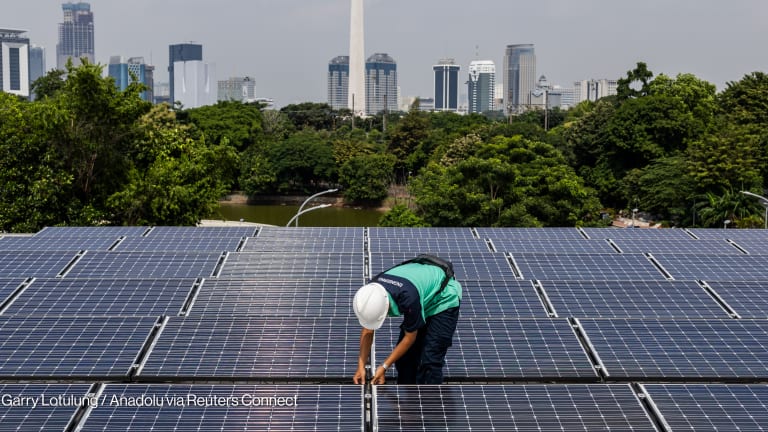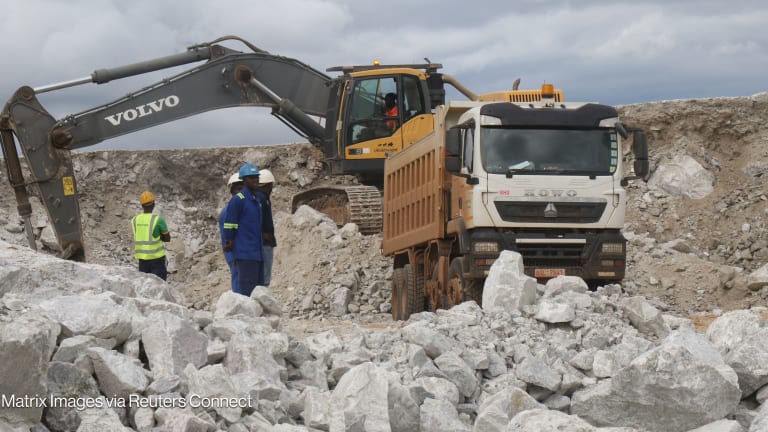
Nigeria’s environment minister warned Wednesday that an international push to stop funding for gas projects in sub-Saharan Africa is threatening the region’s ability to decarbonize in a fair way.
Speaking during a virtual ministerial event on energy, hosted by the United Nations, Mohammad Mahmood Abubakar said several wealthier nations “have gas as a major pillar in their multidecade decarbonization.”
World Bank boosts climate funding, but activists fret over gas deals
A new multiyear plan from the World Bank Group increases its allocation for tackling climate change to 35% of its financing — but critics say this is not enough.
“However, many are now limiting financing to gas projects for domestic use in sub-Saharan Africa, a region responsible for 0.55% of global carbon emission that still needs to industrialize and grow,” he said. “The defunding of gas projects by most financing organizations is a threat to achieving a global energy transition that is equitable, inclusive, and just, leaving no one behind.”
Abubakar’s comments highlight the challenges that lower-income countries face in shedding fossil fuels quickly, especially in strained economic times worsened by the coronavirus pandemic The livelihoods of the millions of people working in the sector are also at stake.
Nigeria, with a population of around 200 million people, is the biggest economy in sub-Saharan Africa, and its crude oil and natural gas resources represent the backbone of its revenues. The country is the largest oil producer in Africa and holds the most natural gas reserves on the continent.
The majority of its generated electricity stems from gas. However, about 43% of the country’s population lacks access to grid electricity, making Nigeria the nation with the largest energy access deficit in the world, according to the World Bank.
Gas is less polluting than coal, and several countries around the world pitch it as a transition fuel until a system based on clean renewables is fully set up. However, there’s also a growing global understanding that more investments in gas projects would result in stranded assets in the future.
The European Investment Bank, the biggest multilateral financial institution in the world, will stop financing fossil fuel projects at the end of this year. The World Bank also said this week it will increase the amount of money it allocates for combating climate change and will support natural gas projects only in certain cases.
“The defunding of gas projects by most financing organizations is a threat to achieving a global energy transition that is equitable, inclusive, and just.”
— Mohammad Mahmood Abubakar, Nigerian environment ministerAbubakar said Nigeria is committed to being part of the global energy transition to achieve net-zero emissions by midcentury but added that energy decisions must take into account “specific national development priorities, objectives, and circumstances, as well as varying and realistic timelines for carbon neutrality.”
Abuja is currently developing an energy transition plan, set for release in September, that will lay out policies and a road map for advancing the energy transition in Nigeria.
The U.N. is holding multiple ministerial forums this week, bringing together ministers and experts from around the world to discuss various challenges in the energy transition. The events precede the High-Level Dialogue on Energy scheduled for September, when countries are expected to step up their climate and decarbonization commitments ahead of the 2021 United Nations Climate Change Conference in November.








